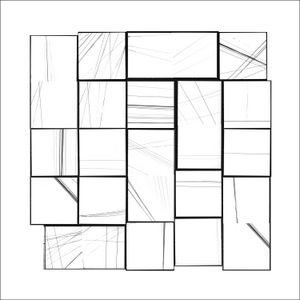
Tortoise
Beacons of Ancestorship
(Thrill Jockey; 2009)
By Conrad Amenta | 1 July 2009
2009 was the fifteenth anniversary of Tortoise’s self-titled debut. Go ahead, dig it out and give it another listen. Beacons of Ancestorship makes a lot more sense if you do. Not because it’s the next logical step in a trackable discographic progression, or because it ebbs or flows with the narrative of an ideal form and the band’s supposed return to it—a story that gets trotted out with every 2000s Tortoise release. Tortoise makes sense of Beacons because, fifteen years and the switching out of some founding members later, the band hasn’t really changed that much. That they withstand the heavy paradox of being an “experimental” band that still sounds recognizably like Tortoise is something interesting and even rare and perhaps at the crux of understanding Tortoise’s lasting appeal.
That’s because their formula was always and is still so broadly inclusive—of Krautrock, world, dub, electronica, punk, post-punk, funk, jam, jazz, minimalism, orchestral, soundtrack, indie, and, yes, experimental—that the band often sounds as if it’s only refined or expanded in minimally incremental degrees. It was as if all of those constituent elements were combined in equal parts and to perfect balance and have since simply been maintained. The first time Tortoise listener can still enter their catalogue at almost any point and hear what amounts to an exploration of propulsion, percussion, and tone by broadminded music enthusiasts with what sound like staggering record collections.
Thus it’s no wonder Tortoise has become a fixture on the jazz festival circuit, playing among all those other acts whose music is largely frozen in the socio-cultural amber of critical respect. The exegesis of Tortoise is that they are a critic’s band—scanning scenes and genres with panoramic perspectives and hoping to pay tribute through inclusion, they are the armchair musicologists with instruments.
And the band still sounds so comfortably in this element that Beacons will surely be either praised or shrugged at as both having redefined and missed the band’s mark. Such is the consistency of Tortoise: that most reviews of their latest material become enamored with the details instead of seeing that the band manifest in more primal or constrained versions of themselves but remain, almost ineffably, Tortoise. Naysayers may still point to the gargantuan “Djed” as some sort of culmination or peak, but it’s still a matter of degrees. It seems like to hold a discussion about the minutia of difference from one album to the next, to insist on a career hierarchy, is to entirely miss the remarkable reliability of Tortoise’s aesthetic. Only Stereolab really come close in terms of ambition this long and wide and accessible.
At the very least this band should be praised for never having resorted to the cheap dramatics to which so many instrumental bands sooner or later resort. There are no child choirs, soaring string arrangements, or guest crooners. The band’s most self-indulgent moments have come in the five years between this and their last effort, the somehow underrated It’s All Around You—a restrained covers album with Bonnie “Prince” Billy, and the meaty and affordable A Lazarus Taxon (2006) box set, which rendered the band’s oeuvre into stark and admirable relief. The band entered the scene as if having existed for years already, and on Beacons they are no less satisfied with the space into which they seemingly settled way back in 1994.
It takes no further a look than at openers “High Class Slim Came Floatin’ In” and “Prepare Your Coffin” which, with the former’s easy swing and the latter’s propulsive rock arrangement and synth, easily reference the band’s broadest dichotomy. The partnership is, of course, impeccably performed, inventively arranged, and could find a place on almost any Tortoise release. “Northern Something,” meanwhile, may conjure the same physicality and appeal of It’s All Around You‘s “Dot/Eyes,” the way that song too acted as hook for its album’s more patient moments. The songs share a sort of mechanized gallop that is immediately infectious. “Gigantes” likewise proffers Tortoise’s efficient brand of “electronic” music, performed largely without electronics and with inhuman accuracy, and is an easy album highlight. What these songs have in common is what they have in common with the songs from every other Tortoise record.
All of which is why, for all my gushing about this band, it’s hard to quantify by way of a score just how good Beacons is or isn’t. Judged on it’s own it would be a matter of course to point out lowlights—the tinkering “Penumbra” and retrograde post-punk of “Yinxianghechengqi” in particular feel like kitsch, “Northern Something” is essentially one rhythmic idea repeated until it runs completely out of air, and the album’s second half can seem fleeting—but it seems like the scores and the reviews flow like so much water around the glacial inevitability of this band. Tortoise have always sounded like they were operating within the environment of their own self-sustaining myths, a biosphere fed by the oxygen of Chicago’s art rock scene, the water of their contrasting musical loyalties, and the sustenance of their fascinations with sounds. And barring some disastrous expedition off their well-beaten path, it’s not inconceivable that we’ll add chorus to this same exact praise fifteen years from now, pinging reviews off this band’s impenetrable hull, and remarking about the essential nature of their longevity.





